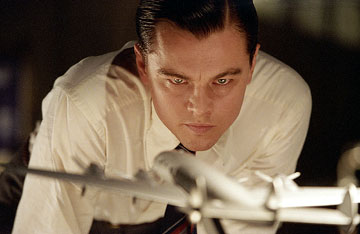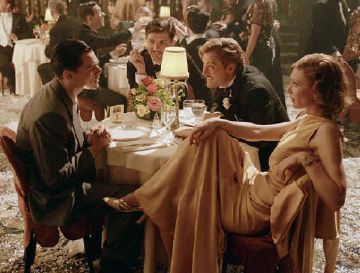We are developing the social individualist meta-context for the future. From the very serious to the extremely frivolous... lets see what is on the mind of the Samizdata people.
Samizdata, derived from Samizdat /n. - a system of clandestine publication of banned literature in the USSR [Russ.,= self-publishing house]
|
Another of my friends has succumbed to the inevitable and started a weblog, this time my Austin, Texas-based pal Alan R. Weiss. Alan is a tremendous dynamo of a character; he is a former vice president of the Free State Project and still closely involved in that venture. Alan is also a businessman an innovator who has harnessed cutting-edge venture capital financing techniques to accelerate the writing achievements of noted libertarian author and campaigner, L. Neil Smith. My girlfriend and I spent a wonderful long weekend in Austin staying with Alan’s great family last September during a marathon trip around the country. I can strongly recommend Austin as a place to visit.
Oh, and he is also a big Firefly fan. Does the guy have no flaws?
He may not be the sort of man who gets the attention of the ordinary citizen, or the sort of man one talks about down the Dog and Duck on a Friday night, but New York Attorney General Eliot Spitzer, wannabe Democrat politician and formidable lawyer, is making quite a name for himself as a legal terror of big Wall Street businesses, launching a flood of suits against insurers, brokerages, fund management companies and banks.
Some of his suits may have an element of justice behind them and no doubt he has calculated that bashing the Gordon Gekko classes makes for good copy and will no doubt endear him to the sort of folk who regard Michael Moore as a political seer. To the rest of us, however, who make a living in the financial markets, his zeal is troubling. Take the recent so-called “scandal” surrounding the case of mutual fund firms which allowed certain types of quick-fire trades to happen in and out of their funds. The activity, while not illegal, is considered harmful because it can damage the long term investments of ordinary investors. Well maybe, maybe not. I find it worrying, however, that the cumulative impact of Spitzer’s energies will be to push up the costs of doing business in the U.S. capital markets, and drive many smart would-be financiers into other fields.
We tend to forget that despite high-level scandals such as the collapse of energy giant Enron, the world economy has greatly benefitted from the efficiencies and new products driven by the entrepreneurs of the modern age. My worry about the whole raft of laws spawned in recent years, such as Sarbanes-Oxley or even the awful Patriot Act, is that financial innovation will be curbed. And as a result, many businesses will shun the public listed stock market and choose to go private instead if that is the way to avoid the glare of the Eliot Spitzers of this world.
Regulatory growth is not a sexy subject, I admit, but let’s not forget that the destruction of wealth and entrepreneurial morale will end up biting us in the economic behind if we don’t take a full regard to the effects.
Iraqis are going to the polls. I hope the whole process goes well. I came across this link here which gives all kinds of information about the election and the participants. Cynics may dismiss the whole process and of course the problems of that tortured country will remain for a long time. As an uncertain supporter of the war to topple Saddam, my main reason for deposing the vile Baathist regime was that its removal was in my view the least-bad option, but the chance of sowing the seeds of liberal democracy in the Middle East was a key bonus. I hope that the citizens of Iraq can start to look forward to a better future.
As we mark the sombre 60th anniversary of the opening of Hitler’s murder factories in Belsen and elsewhere, those prize asses at the Labour Party come up with an anti-Conservative poster portraying leader Michael Howard and shadow finance pokesman Oliver Letwin as flying pigs. Both men are Jews.
Now, I will be charitable to the Labour Party and assume that the creators of this piece of rubbish were so dumb as to fail to think through the significance of this poster and are not anti-semitic, which is an extremely serious charge to make. As I am a hardline defender of free speech, I would of course say Labour is entitled to engage in any manner of roughhouse advertising. I certainly do not think the party should be dragged before the courts. In fact I think Labour has scored a bit of own goal. Some Jewish voters may shun Labour at the national polls, widely expected later this year.
This poster may suggest something quite encouraging to the Conservatives. Maybe this government, which is not exactly shooting the lights out in the opinion polls, is rattled at the Tories’ willingness to talk regularly about cutting the State down to size and cutting taxes. The Tory plans are hopelessly cautious, in my view, but credit to them anyway for pointing out that the government’s spending binge has failed to deliver discernible results and that a major reorientation of policy is required.
Mind you, I still haven’t forgiven Mr Howard for his support for compulsory ID cards.
There is an article in the Spectator which seems a bit complacent to me:
If a violent criminal breaks into my house I, too, may react violently, but if I do so I doubt whether I shall live in fear of ending up like Tony Martin. This is because the law already accepts the right to self-defence and does so in such a way as to take into account an individual’s assessment of the threat in the heat of the moment. Strip away the Tony Martin case, which unfairly dominates all discussion on this topic, and just look at other recent cases. In November 2002 the retired businessman Anthony Spray heard somebody trying to open the door of his Cumbrian home and went downstairs, armed with an air rifle, to investigate. Seeing a figure at the now open door, he shot 19-year-old Paul Evans in the eye from a distance of four feet. Evans, it transpired, was not a burglar: he had mistaken Spray’s house for a B&B where he was staying. As a result of his mistake, Evans lost an eye, yet Spray was not jailed: he was given a 12-month suspended sentence and ordered to pay £3,000 compensation.
Riiight. So the author of this piece, Ross Clark, thinks that the case of Tony Martin, the west Norfolk farmer jailed for killing an intruder at his farm and injuring another, is just a freak, a one-off case which need offer no special insights into the rights of self defence. The Spray case, as is clear, still resulted in the householder being convicted, albeit not having to serve a term of imprisonment.
Clark’s piece is not without merit. He argues that the United States has achieved a large fall in crime due, he claims, to such factors as ‘zero tolerance’ policing, tough sentencing and the like. No doubt these have played a part but it is a distortion to suppose that America’s much lower level of aggravated burglaries is not partly linked to widespread ownership of firearms and a different approach on the part of the courts to householders using force to defend themselves.
Clark is correct to state that hard cases make bad law. He is, however, dead wrong to suppose that apart from the Tony Martin case, there are no examples of homeowners having been prosecuted for self defence. And it is abundantly clear that burglars have got the message: raiding a person’s home is a low-risk activity in Britain, as Perry de Havilland’s former neighbour, the late City financier John Monckton, found out last year.
Fortunately, we have the historian Joyce Lee Malcolm to set us straight on the real lessons to be learned from recent trends in British and American policy on self defence and the law. I urge everyone interested in this issue to read her book if they haven’t already done so.
UPDATE: In thinking through the Spray case mentioned above, I do accept that it was right for the householder to compensate a man mistaken for a burglar, but the suspended jail term strikes me as quite wrong although I have not studied all the particulars of the case, including whether the householder had been the victim of multiple burglaries in the past, like Tony Martin.
Well, a couple of weeks have gone since the usual festival of excess generally known in these parts as Christmas. When I turn on the television, the radio, or look at the adverts plastered on the walls of the London Underground, it is hard to escape the messages urging us all to lose weight, give up X or Y, go to the gym, blah, blah. Well I do my best to stay in some form of shape by attending a gym fairly regularly, but I must admit there is almost something rather reassuringly predictable about this annual burst of puritanical preaching about the need to turn over a healthy leaf and get into shape. It is like the passing of the seasons.
However, I realise that many of the fine Epicureans who read and write for this blog take a more robust view of these matters and have no time for such asceticism. Well, I have great news. Medical research reveals that you can lose weight by sleeping longer.
That is what I call good news.
I was so struck by the hostility expressed inthe comments section of my previous post about Virgin airline boss and entrepreneur Richard Branson, in some cases for quite valid reasons, that it got me thinking of whether there is, in today’s business world, any entrepreneur who would pass the kind of harsh ideological standards we libertarians might want to set and be able to become a major business player.
I doubt it, sadly. If I am wrong about that, comment away.
There are a lot of big shiny 1940s-era aircraft zooming across our cinema screens at the moment. Yeh! We have had Sky Captain and the World of Tomorrow, we are due to get the remake of The Flight of Phoenix, based on the wonderful old movie starring James Stewart, and I have just returned from watching The Aviator, starring Leonardo Di Caprio as mogul, test pilot and eccentric, Howard Hughes. It is a fine film, and makes a number of important points about the man himself, the nature of doing business in America in the mid-20th Century and the evolution of modern air travel.
The story is quite well known of how a rich young oil family son becomes a major player in the aviation industry, challenges rivals like PanAm, produces smash-hit movies, before descending into madness and solitude. Director Martin Scorcese has long been fascinated with Hughes’ tale and gets DiCaprio to convey the mixture of driving ambition, brilliant engineering skills, bravery and craziness. Hughes could be seen, from one vantage point as an almost Randian-style business hero, challenging rivals like PanAm, whose boss was played with appropriate menacing charm by Alec Baldwin.
There are two great scenes which get the pro-enterprise, unpretentious side of Hughes across. He drives with his then girlfriend, Katherine Hepburn, excellently played by Cate Blanchett, to see Hepburn’s family. At lunch, Hepburn’s mother, instantly declares to Hughes that “we are all socialists here”, and “I do hope you are not a Republican”, and Hughes, bless him, looking around the vast mansion and its grounds, is too dumbstruck at these comments to make a fast and smart reply. Recovering his composure, later Hughes tells the preening Hepburns that his favourite reading is technical engineering reports on planes, which of course has the welcome effect of shutting the ghastly Hepburns up.
In a later scene, set in 1947 when Hughes is fighting for the future of his airline TWA against the monopolistic ambitions PanAm in cahoots with the U.S. Senate, Hughes makes a number of fine points about competition and business risk-taking that almost got me cheering in the stalls. Hughes wins his battle and PanAm is forced to concede.
Hughes was a troubled man and spent the last two decades of his life in circumstances so lonely and depressed that it of course will colour one’s view of his life in the round. But I came away from the film feeling a certain admiration for Hughes in how he was willing to challenge the status quo. Long after people have forgotten corrupt U.S. senators and complacent airline bosses, they will remember the man who built and flew some amazing planes. I also cannot help but wonder whether people will think something similar in future about our contemporary airline boss and daredevil man of action, Britain’s own Richard Branson. We shall see.
With all the understandable attention being focused on the dreadful situation in the lands skirting the Indian Ocean, there is always a danger that disasters of a different, more Man-made kind, get overlooked. Well this week the German statistics office reported a dreadful set of unemployment figures, showing the number of jobless in Europe’s biggest economy to be at the highest level for seven years
A Bloomberg report on the story contains the following passage:
New measures cutting benefits for the long-term unemployed took effect on Jan. 1. Those without a job, including people previously registered as social-welfare recipients rather than as jobless, will also face increased pressure to accept job offers or risk losing benefits. The changes will add an as yet undetermined number of people to the January jobless total.
But it is clear that the German authorities are still tinkering with the issue. That 10.8 percent of the working age population of such an important country should be out of a job is a disgrace. What I find odd though is how little outraged commentary in the economics part of the press there is about this. It is almost as if the European chattering classes have come regard this problem in Germany, and also France, with an air of sullen resignation. Of course, dealing with it will involve lots of vulgar, Reaganite actions such as deregulation, tax cuts to spur business formation and the like, which of course goes against the grain of Germany’s ‘managed’ form of business so beloved of leftist commentators like Britain’s own Will Hutton.
Germany needs to get its act together. Some 15 years since reunification with the eastern part of the country, Germany has failed to live up its early promise. With so many young people, including those from immigrant backgrounds, on the dole, no wonder commentators wonder about the social fabric of that country. They should.
Entrepreneurship does not seem to get a very fair run on our main terrestrial television channels, as far as I can tell. The BBC is a particular offender. So credit is due to the BBC for a programme that shows how contestants with business ideas compete for money and interest from a panel of venture capitalists.
I watched the programme on Tuesday evening, and after my initial reservations about the format I became pretty engrossed. At the end, the final contestant, who eventually negotiated a deal where the others had failed, came across as such a smart fellow that I would have invested my own meagre funds in his idea.
The impression I got was that the producers asked the panel of VCs to play the role of flint-faced, capitalist bastard. They certainly succeeded. I disliked all of them intensely. No doubt that was the goal of the producers, but despite all that, I could not fail to be impressed by the enthusiasm of the wanna-be entrepreneurs.
The BBC may not fully realise it, but it is spreading the entrepreneurial meme.
Must say I am particularly impressed by the Sports Illustrated swimsuit calendar this year. In these dark days of January, what better than some quality cheesecake to lift the gloom!.
As regulators impose more onerous capital adequacy and reporting requirements on the Western world’s banks, investment firms and brokerages, demand surges for increasingly sophisticated computer infrastructure to keep track of all the new systems deemed necessary to make the regulations work. As a result, demand is rising, according to this Financial Times article, for graduates with science degrees, especially in the field of physics. And it does not come as much of a surprise to learn that Britain’s mostly state-run education system is not doing a very good job at churning out young physics students. I am shocked, shocked to hear this!
I would greatly prefer it if clever folk with scientific knowledge were engaged in the potentially fruitful areas of nanotechnology, biotech, aviation and civil engineering, all fields likely to see continued rapid growth, than working to make increasingly Byzantine bank regulations work better. It looks like a waste to me. We want our budding Isaac Newtons and Richard Feynmans working on spacecraft, not greasing the wheels of the latest EU banking directive.
|
Who Are We? The Samizdata people are a bunch of sinister and heavily armed globalist illuminati who seek to infect the entire world with the values of personal liberty and several property. Amongst our many crimes is a sense of humour and the intermittent use of British spelling.
We are also a varied group made up of social individualists, classical liberals, whigs, libertarians, extropians, futurists, ‘Porcupines’, Karl Popper fetishists, recovering neo-conservatives, crazed Ayn Rand worshipers, over-caffeinated Virginia Postrel devotees, witty Frédéric Bastiat wannabes, cypherpunks, minarchists, kritarchists and wild-eyed anarcho-capitalists from Britain, North America, Australia and Europe.
|






